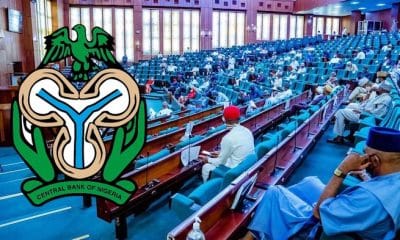Nigeria News
‘Action Disastrous‘ – Shehu Sani Slams CBN Over Lifting Of Forex Ban On Rice, Cement, Others

Former Kaduna Central Senator, Shehu Sani, has faulted the decision of the Central Bank of Nigeria (CBN) to lift the ban on 43 items from accessing foreign exchange.
In a post he made on Friday via his X (formerly Twitter) handle, Sani stated that the decision of the apex bank is a disastrous economic strategy which would only worsen the economic situation of the country.
The former lawmaker stated that the nation’s scarce forex should be used to support local production not for the importation of items.
Sani urged the new CBN Governor, Olayemi Cardozo, to think of better ways of addressing the economic situation in the country.
He wrote: “Lifting of the ban on the importation of toothpicks, Cement and other agricultural products that we can produce at home is a disastrous economic strategy.
“The nation’s scarce forex should be used to support local production not importation. The new CBN Boss should think of better ways.”
Recall that CBN, in a major monetary policy shift, restored the 43 items which were banned from accessing forex since June 2015.
Items on the list include rice; cement; toothpicks; margarine; palm Kernel/Palm oil products/vegetable oils; meat and processed meat products; vegetables and processed vegetable products; poultry – chicken, eggs, Turkey; Soap and cosmetics; tomatoes/tomato pastes; milk; maize and tinned fish in sauce (Geisha)/Sardines.
Others are steel drums; steel pipes; wire rods (deformed and not deformed); iron rods and reinforcing bars; wire mesh; steel balls; security and razor wire; wood particle boards and panels; wood fibre boards and panels; plywood boards and panels; wooden doors; furniture; glass and glassware; kitchen utensils; tableware; tiles – vitrified and ceramic; textiles; woven fabrics and clothes.
The apex bank, in a statement signed by its Director of Corporate Communications, Isa AbdulMumin, said the ban lifting is to sustain the stability of the foreign exchange market and the derivation of optimum benefits from goods and services imported into the country.












